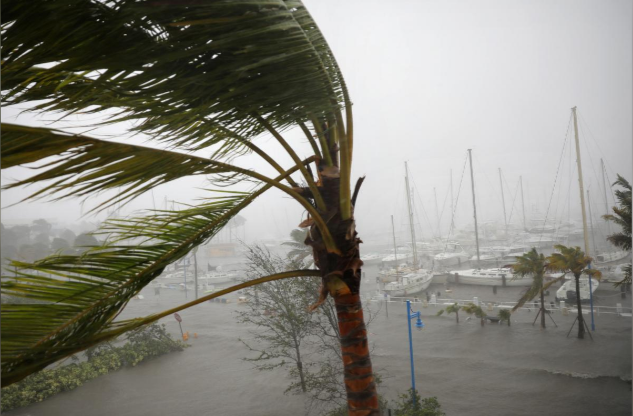Natural disasters and a loving God: How do we reconcile the two?
Many of us have watched our TV screens in horror as Hurricane Maria rips through the Caribbean and Mexico deals with the aftermath of a deadly earthquake. Before Maria, Hurricanes Irma and Harvey brought further destruction, while monsoon floods in south east Asia left around 1,200 people dead.

How do we make sense of disasters such as these? Philosophers refer to this kind of suffering as 'natural evil'. In other words, evil that impacts the natural world itself, as opposed to 'moral evil', which results from human behaviour. Why does God let disasters happen?
I do not take this subject lightly, nor do I even pretend to have all of the answers on this deeply sobering topic. But let me offer some broad reflections.
1. If God doesn't exist then it's all 'natural'. There are no 'disasters'.
If there is no supernatural dimension then we are left with a closed system of physical forces, and earthquakes, tsunamis and hurricanes are merely the outworking of the laws of nature. This is simply the way the world is. In other words, if God does not exist then it's all natural. There are no disasters as such.
To call something a disaster is to imply that something is wrong. But wrong according to whose standard? The apologist Ravi Zacharias points out that when we object to suffering we invoke a moral law that can be traced back to the One from whom that law originates, God himself. The fact that we raise these very questions points us towards God, not away from him.
So, the question 'Why natural disasters?' is not straightforward. We will refer to them as 'natural events' for now. There are a number of positions held, and two will be highlighted here.
a. Natural events are not bad in themselves. They only become a disaster when people die.
One view is that natural events are not intrinsically bad. They existed before the Fall and will exist in Heaven. The impact of the Fall is that we have become vulnerable to them in several ways.
One way that we have become vulnerable is through poverty and injustice. The number of deaths in developing countries is generally an order of magnitude higher than in developed countries. Natural events are so much more devastating in poorer countries because of the lack of infrastructure and poor-quality, high-density housing that cannot withstand the impact.
Although people are not responsible for the natural event itself, poverty and injustice, caused by human greed and corner-cutting, undoubtedly add to the death toll.
A second area of vulnerability has come through changing weather patterns. During the 20th century, the Earth's global temperature has notably increased, causing polar ice caps to melt. Some scientists also believe global warming has also caused changes in local weather patterns leading to increased numbers of hurricanes, tornadoes, severe flooding and landslides.
There are many competing explanations for these changes, but at this stage it cannot be ruled out that increased carbon emissions from excessive human lifestyle has had a role to play in some of the more severe weather we are seeing. Sadly, the poor are the greatest affected.
b. Nature is broken.
A second possible position holds that nature is incredibly beautiful but something is also wrong. Nature itself is broken and theologians differ on when they think the breakage occurred. Some believe it happened before the Fall.
Others would link the breakage to the Fall itself, and believe that the human decision to turn away from God dragged the whole of nature along and introduced (or made worse) these cataclysmic events.
Are natural disasters God's judgment?
On hearing of a natural disaster, some are quick to pronounce this as God's judgement on a particular region for a particular sin they have committed. Jesus made it clear that this is not the case. In Luke 13, Jesus responds to suffering of some Galileans caused by Pilate's brutality, and also due to the collapse of a tower on innocent people.
We are not told whether the tower collapsed due to an earthquake or due to poor construction. Yet, Jesus is clear that suffering of this kind is not God's judgment but is a reminder to onlookers of the brevity of life and the urgency of the need to turn to Christ.
What should be our response to natural disasters?
The Christian story tells of a God who does not leave people to suffer alone. He has intervened in the person of Jesus Christ and continues to come alongside hurting people today in direct and indirect ways. Medical professionals and disaster relief organisations are God's very 'hands and feet' in rescuing and helping the people on the ground.
'There's always somebody worse off than you' is an expression that I hear a lot. News of natural disasters can engender the feeling that our own problems are irrelevant. But the truth is that God can handle it all. Whether you are alone and grieving, or your entire island is under water, you matter to God. Your suffering matters to him. Talk to him.
Dr Sharon Dirckx is a senior tutor at the Oxford Centre for Christian Apologetics.











